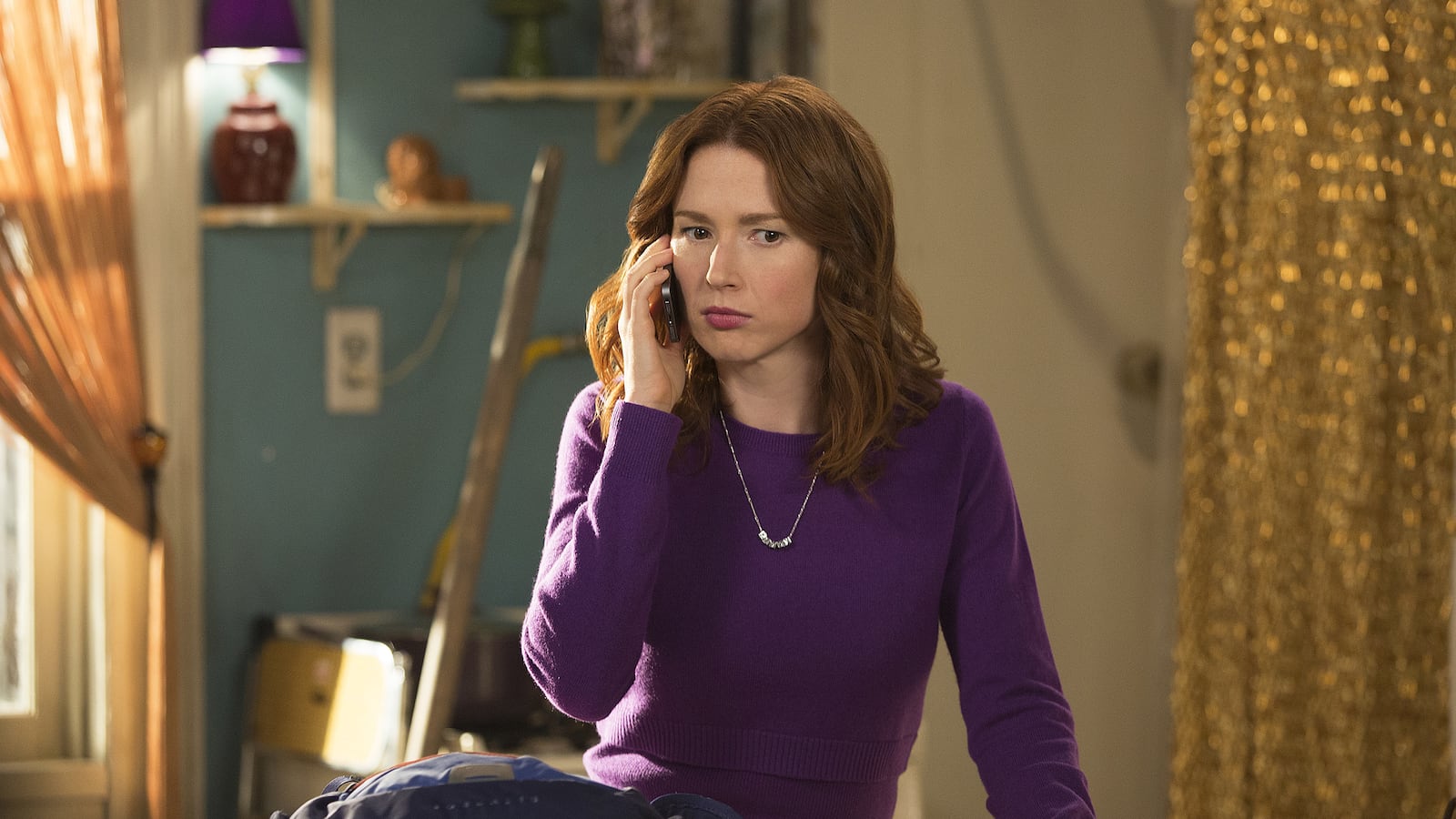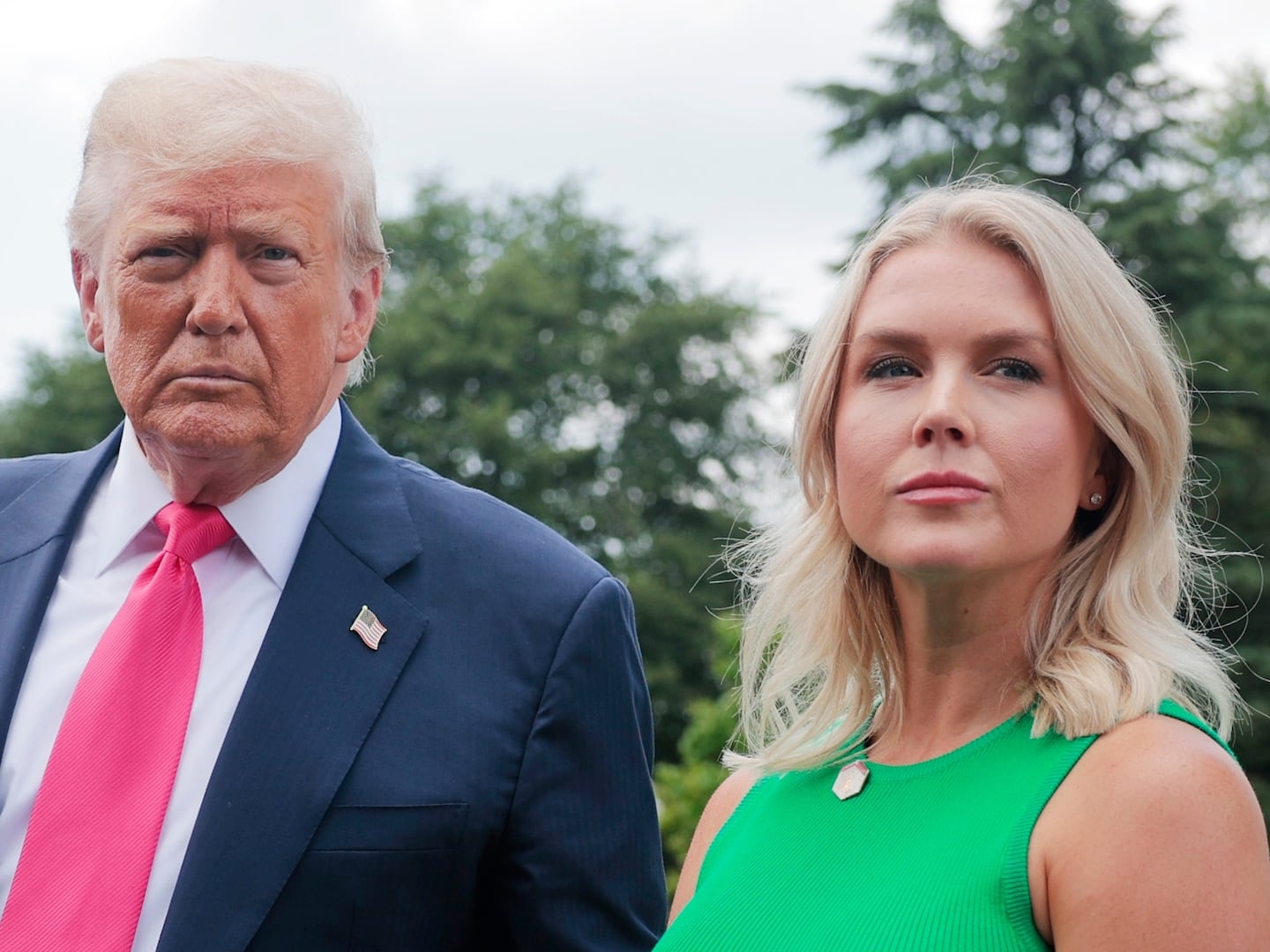If you’re like most 30 Rock and Tina Fey lovers, you probably spent this past weekend binge-watching her new Netflix show Unbreakable Kimmy Schmidt from the comfort of your bed eating nachos, Liz Lemon-style.
And if you’re like most of those people, you loved the sitcom, which stars Ellie Kemper as Kimmy Schmidt, a woman who spent 15 years of her life in a bunker thanks to the preaching of a doomsday cult. In the pilot, Kimmy, along with three other women, are rescued from their underground prison. Instead of returning to her hometown in middle-of-nowhere Indiana, the wide-eyed redhead decides to take on life as a New Yorker.
Truly, there is so much to love in the show, especially the hilarious, upbeat way Kimmy survives everything from getting her GED to holding the hand of her housewife-reality-television-worthy boss Jacqueline (played by the fab Jane Krakowski) with a smile on her face. But while the sitcom had me giggling and continually clicking “play next episode,” there were the occasional moments that left me mildly uncomfortable—largely the parts of the show dealing with racial minorities.
The show comically tackled race early and often, and did have some particular scenes that astutely critiqued modern-day race issues. One such joke made within the first two minutes is so smartly real that it’s cackle-inducing:

And Kimmy’s roommate Tituss is a queer black man who is majorly frank about the bullshit he gets on the regular while walking through New York City. In one episode where he dresses up as a werewolf for work (it’s a monster-themed restaurant, duh), Tituss realizes that he gets treated way better as a werewolf than a black man and decides to hold onto the lycanthrope look as long as possible.
But while Unbreakable Kimmy Schmidt has its golden moments when it comes to making shrewd points about racism in today’s society, watchers are also aware of its shortcomings. And they’re tweeting about it:
Kimmy Schmidt is really fun and great but that makes the unapologetically racist bits so much worse.
— Andy Herrera (@benbraddocks) March 9, 2015Really enjoying "The Unbreakable Kimmy Schmidt" so far, but anyone else feel like it's kinda racist toward Native Americans?
— Tyler Kingkade (@tylerkingkade) March 8, 2015finished Kimmy Schmidt. it was pretty good. but p racist? idk
— Sophie (@insopherable) March 7, 2015Not every joke on The Unbreakable Kimmy Schmidt works, and some of it is racist, but I haven't stopped smiling since I started watching
— Anthony Brian Smith (@AnthonyBLSmith) March 7, 2015The portrayal of Kimmy’s love interest Dong and how Jacqueline’s Native American roots are incorporated into the plot, especially, had me scratching my head trying to figure out if what was meant to be subversive ended up coming off as offensive.
It’s exciting to see an interracial couple that breaks the homogeny of sitcom relationships, especially with an Asian-American romantic lead. Dong is a Vietnamese immigrant who works as a Chinese food deliveryman, and is played by the Korean-American actor Ki Hong Lee (The Maze Runner). The show is self-aware of its pushing against the everyday current, with landlord Lillian telling Kimmy, “For some reason, that Asian fetish thing tends to go one way, white guys and Asian women. But swim upstream, and a lady can clean up.”
But Dong’s role is only groundbreaking with respect to dating Kimmy. Without her, he’s the Asian stereotype that’s all too common in pop culture: broken English, but damn good at math. He’s still an amazingly sweet guy, but as Fusion’s Molly Fitzpatrick puts it, “A show as sharp, self-aware, and diverse as this one probably owes him better.” He should be fleshed out as more than just an algebra tutor that’s also boyfriend material for Kimmy—throw us a bigger surprise.
Meanwhile, Jacqueline’s subplot of reconnecting with her Native American roots is just a bit odd. She dyed her hair, plugged in some eye contacts and left her parents and backyard buffalo in order to follow the American Dream of marrying rich. It’s pretty random when introduced in Episode Three, feeling less like a curveball for her character arc and more like a sloppy hot dog chucked into the plot.
And while on a road trip with Lillian to save Kimmy in the season finale, Jacqueline beats up a high school marching band and their mascot: the Townville Indians. Again, the often nonsense-speaking Lillian has the true nugget of wisdom: “After everything that Native Americans have been through—robbed of their land, ravaged by smallpox, forced to watch Mexicans play them on TV,” she says. “And now still with this nonsense.”
Along with the help of a rival band with a wolf mascot, Jacqueline takes down the racist depiction of her people and erupts in a primal howl. The scene is a hoot, with Krakowski punching in a drum and stomping on a mascot’s decorative head. However, Jacqueline’s subplot of rediscovering her Native American identity is puzzling. In many of her flashbacks, she’s rude to her parents and pushes away her family history—something many of us might relate to. But it feels like it’s there to give the character some added, extraneous depth.
While depictions of Dong and Jacqueline might be problematic, they are definitely in there for a reason, even if they’re eliciting mixed messages and raised eyebrows.
All of Fey’s comedies skewer tropes in order to critique them. Remember Mean Girls? And the other characters of Unbreakable don’t escape that distortion (for example, Jacqueline’s stepdaughter is a spoiled Upper East Side teenager). But this isn’t the first time Fey has faced criticism concerning how she lampoons Asians. Some critics were left with a bad taste in their mouth after Fey and Margaret Cho’s North Korea jokes at the 2015 Golden Globes, which stem back to the days of 30 Rock.
And in the end, Jacqueline’s daughter feels redeemed when it turns out she’s not as big of a partier as she is a studier. But by the end of the last episode we binged, Dong and Jacqueline still feel rough around the edges regarding the loftier issues these characters are meant to satirize.
Thankfully, we’ve already been promised a second season to see how these characters’ stories get refined.






